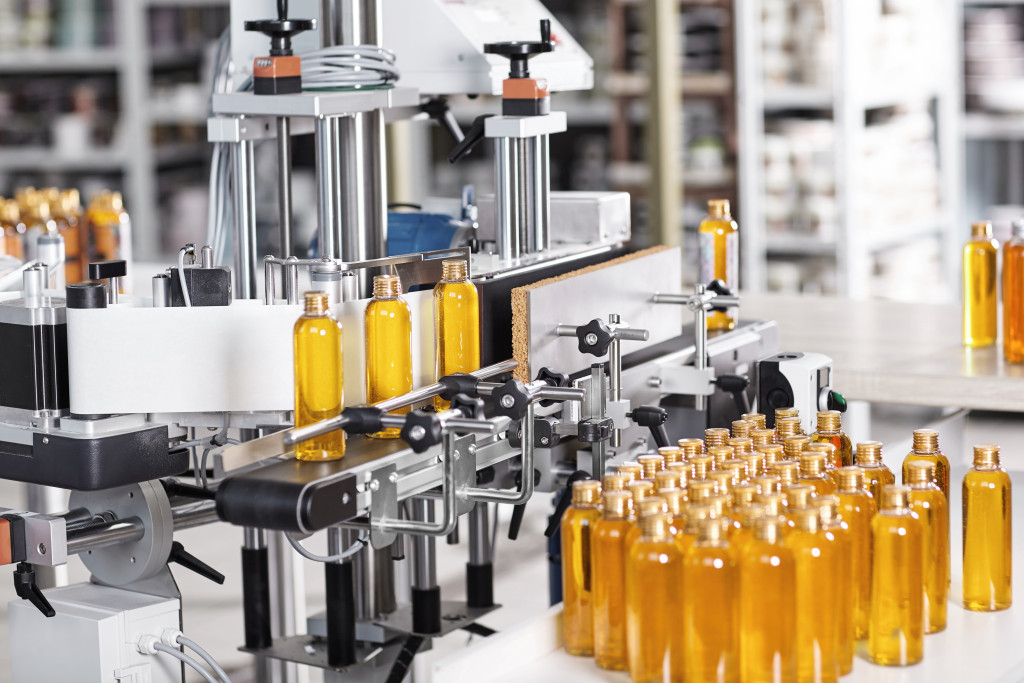- You can use industrial sensors, CNC machines, and other automation technologies to increase precision in manufacturing processes.
- These technologies provide real-time feedback, optimize process time and reduce mistakes from human error.
- Laser cutting & engraving technology allows manufacturers to customize products or apply intricate details quickly.
- Robotic automation systems automate processes that might otherwise be too complex, time-consuming, or hazardous for a human worker.
Manufacturing processes have become increasingly complex in recent years, and precision is essential for producing high-quality products. As a result, manufacturers are turning to cutting-edge technologies to help them achieve greater accuracy and efficiency.
This article will explore how you can use these innovative technologies to increase precision in manufacturing processes. This will also discuss the potential benefits of adopting such solutions for businesses looking to stay competitive in today’s market.
Industrial Sensors
Industrial sensors are a specialized technology that can increase accuracy and precision in modern manufacturing processes. Utilizing advanced sensors, markets ranging from automotive production to 3D printing can react and adjust their strategy with nearly instant feedback, leading to higher-quality end products.
The range of industrial sensors is vast and ever-growing, giving research and development teams access to devices that measure light levels, impact forces, rotational positioning, vibration intensity, and more.
A combination of multiple sensing technologies — such as force, position, temperature, and vision — helps engineers build an accurate “virtual map” of the environment for enhanced control and performance. Consequently, industrial sensors have become invaluable tools for automating production processes and maintaining high product quality standards.
Computer Numerical Control (CNC)
Computer Numerical Control (CNC) is a technology that has revolutionized manufacturing by providing more precise automation. It uses computers to control machine tools, such as drills, lathes, and routers that shape materials like wood, metals, and plastics.
CNC is designed to optimize process time and improve precision and accuracy in finished products. Additionally, its programming abilities allow processes to change quickly with minimal downtime and waste.
CNC accuracy reduces defects while reducing scrap rate; it also lessens operator fatigue due to strain from manual handling of tools. Its widespread implementation has allowed for increased repetition and a reduction in labor costs.
Automation Technologies
Here are a few of the automation technologies that can be used to increase precision in manufacturing operations:
3D Printing
3D printing is a revolutionary technology that has revolutionized the field of manufacturing. In essence, this is a process by which three-dimensional objects are created using computer-aided design models. Instead of relying on human labor to cut, shape and assemble materials, 3D printing allows for a high level of precision in manufacturing processes.
This technology reduces costs and production time by reducing the need for additional parts or tools. Increasing speed and accuracy in the manufacturing process eliminates variables such as human error and thus improves safety.
Furthermore, 3D printing enables the production of complex objects and products you could not have created through traditional methods. This makes it ideal for medical devices, functional prototypes, and aerospace components.
Laser Cutting & Engraving Technology
Laser cutting and engraving technology is a computer-aided machining (CAM) form that utilizes a focused beam of laser light to cut, engrave, and mark into materials with increased precision and accuracy.
By using an industrial-grade laser machine, manufacturers can produce products with tighter dimensional tolerances for more precision and consistency than traditional manufacturing methods. This technology dramatically increases the speed of production compared to manual cutting tools, thus allowing manufacturers to achieve higher productivity levels in less time.
The cost savings combined with consistent results make laser cutting and engraving technology an invaluable asset for many manufacturing companies. Its flexibility also allows manufacturers to quickly customize products or apply intricate details that might not be achievable by other methods.
Robotic Automation Systems

Robotic automation systems are an invaluable tool for precision manufacturing. Robotic automation systems are comprised of customizable robotic arms and skill sets; they are programmed to complete specific tasks quickly and accurately, such as welding, handling parts, or transferring objects.
This technology is a savior, taking on laborious tasks that are too complicated or risky for humans – saving precious time and effort. Because it is exact and repeatable in its tasks, many industries rely on its accuracy to produce consistently high-quality products. It also increases cost efficiency by minimizing the need for manual labor while not compromising on quality standards.
Augmented Reality

Augmented Reality (AR) is a cutting-edge technology that is revolutionizing the accuracy of manufactured products. By superimposing virtual images onto a user’s real-time view, AR allows design teams to compare what has been designed with actual physical environments where products will be used. As such, it provides an unprecedented level of precision for any operation that requires assembly or installation.
With augmented reality technology, engineers can minimize mistakes during production and ensure that products are created according to graphical, structural, and functional specifications. The importance of this innovation cannot be overstated; AR helps manufacturers improve the quality and reliability of their finished goods while cutting labor costs concurrently.
These are just a few of the technologies that are revolutionizing precision manufacturing. From industrial sensors to robotic automation systems, these solutions offer manufacturers unparalleled accuracy and control over their production processes.





